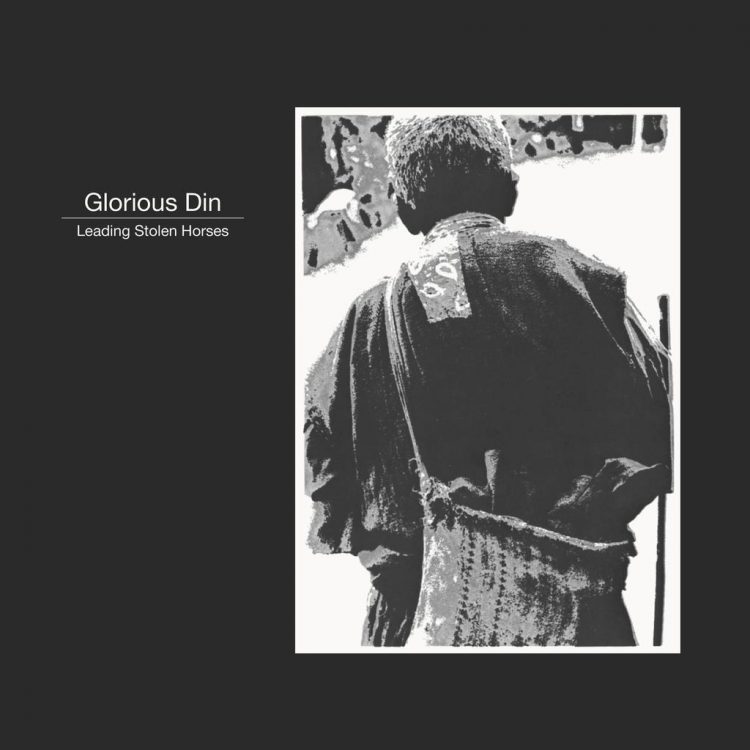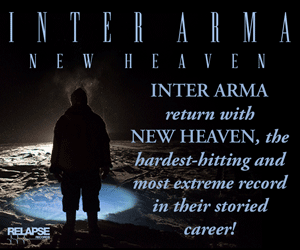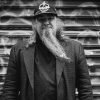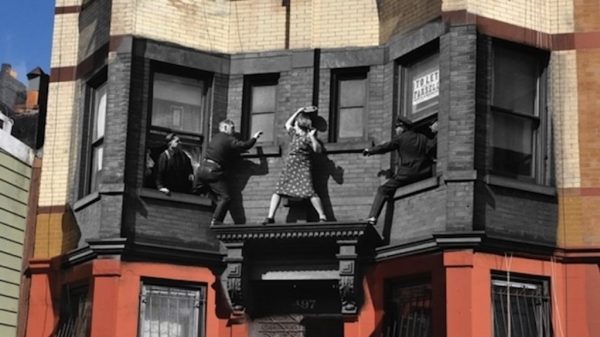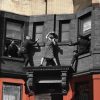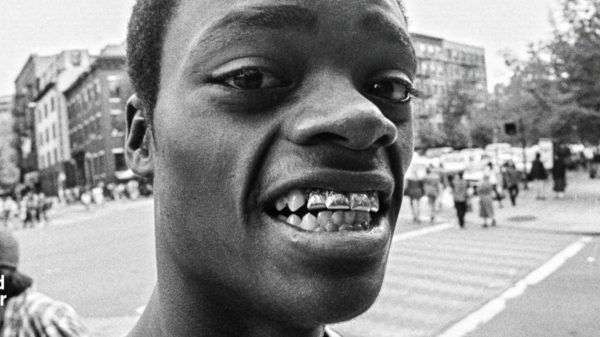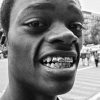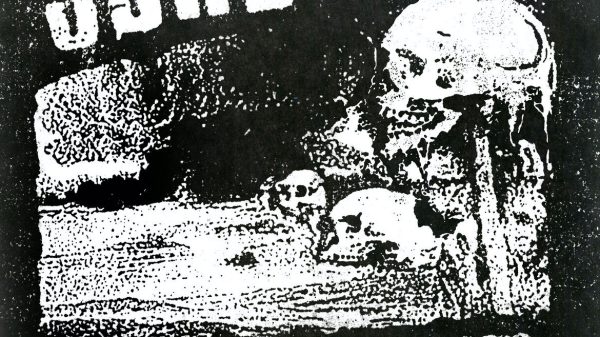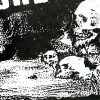Interview pinched via Red Bull Academy
Of all the hip hop magazines to emerge in the ’90s, none was more potent than Murder Dog. Where more visible publications like The Source and XXL took an East Coast and industry-centric survey of the genre, Murder Dog built their rap world around smaller market street rap scenes from all over the country. The interviews were unedited and sprawling, frequently bleeding past the page’s margins. The photography was equally – and sometimes disturbingly – raw, with covers that frequently depicted artists throwing up gang signs or wielding handguns.
This sort of localized and unfiltered focus would prove prescient. By the turn of the century, New York’s grip on hip hop had begun to loosen and all of these micro-scenes flooded the market. Most of the once-independent rap artists and labels to ride this wave to stardom – E-40, Three 6 Mafia, No Limit, Cash Money, Tech N9ne, Insane Clown Posse – had already seen their earliest pre-fame press in the pages of Murder Dog. (Perhaps more fascinatingly though, the magazine’s 21 year run also stands as the only lasting documentation of hundreds of local stars who never managed to crossover.)
One might assume that Murder Dog’s founder and publisher and editor-in-chief and photographer and writer, a man known only as Black Dog Bone, would come from the same streets that produced his subjects. In fact, he hails from the other side of the world. A Sri Lankan immigrant, Black Dog speaks softly and with a thick accent. He looks to be in his early 50s, though he was only willing to date himself as “ancient.” He carries himself thusly, with an effusive kindness and a deliberate sort of wisdom. He’s equally outspoken too, the type of guy who presses his hand to his heart as frequently as he throws a middle finger to the sky. While holding court at a Tex Mex chain restaurant in Vallejo, CA, Black Dog broke down the long journey that led him from the jungles of his homeland to the heights of hip hop publishing and back again.
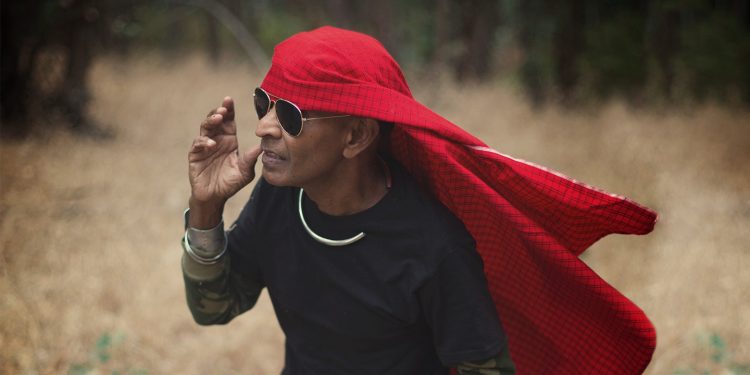
So how did this all start for you?
I was going to the San Francisco Art Institute. I’m a photographer and I was really into rap, but they aren’t just gonna let you walk into Oakland and start taking photographs. So I thought I could do a magazine and just get into the whole world of rap and everything. I didn’t have any money or any understanding about how to do a magazine, but for my last semester I had independent studies and they said you can have the whole semester to do the magazine.
I was really into East Coast rap. One of the first people I [interviewed] was Wu-Tang Clan. They had just come out with their record and they had an apartment in the Fillmore. They were here for two weeks and they said, “Come down.” Then it was like Fugees and Lauryn Hill. They were kids, we were just hanging out all day together. So I took all these photographs – mostly I was taking black and whites because that’s what I was into – and I didn’t even have a magazine. I was living in Oakland and Frisco, I was living in a van.
I had heard about this printing company in the Mission, they were the ones who did that punk rock magazine Maximum Rock N Roll and they also printed the Black Panther Party’s newspaper. I didn’t know how to do layout and all that, they were teaching me. To tell you the truth, I couldn’t even type. I had a guy in the Art Institute [who typed for me] and I was hand-pasting it. Everything was hand pasted in the first issue.
I did all this stuff and the first magazine went to press, but I didn’t even have any money. It was $2,000 to print it. Not that $2,000 is nothing but to me… I didn’t have it. I wrote him a check and gave it to him and there was no money in the bank. I had like $25 in the bank. So that’s the beginning of Murder Dog – a bad check. This is what we did for 20 years. I had no money, no knowledge of making a magazine, no knowledge of typing, my English was horrible, I was not trained as a reporter. I just did it because I wanted to do it.
Did you first come to the States to go to school?
No, I was in a band. I was in a punk band in Iowa.
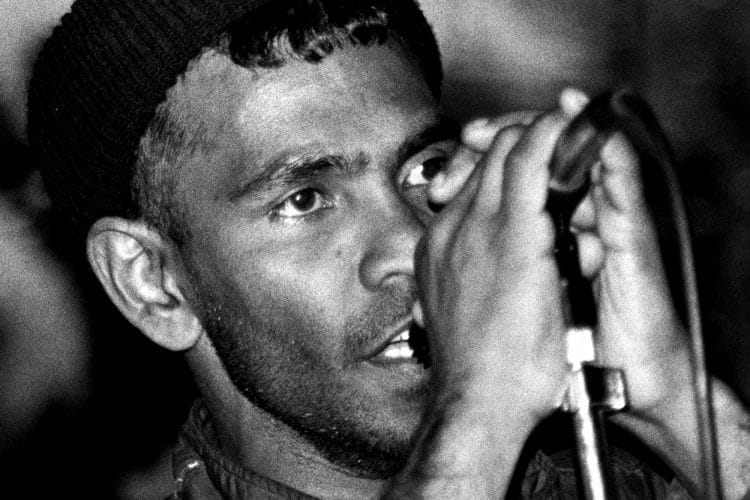
How did you land in an Iowa punk band?
Oh, you want to know my whole story? I grew up in the wilderness of Northern Sri Lanka, literally in jungles. I’d wake up in the morning and there’d be elephants outside of my house. I had an old man, who was a tribal man, that I would follow all over the jungles all day. A shaman named Apu Hami. That’s how I learned all the stuff I know. He was a shaman, a dancer, all that stuff.
Then what happened was that my parents wanted me to go to school. So they moved me to the city and that totally fucked me up. I came to the city, Colombo, and I was totally an outsider. I was not even a village boy. Village boys [grew up] with people. I grew up alone with this old man because my mom and dad were doing this and that. So I got into trouble at a very young age – stealing books, cutting school, fighting. I was a big problem for my parents. But somehow I survived and got through. Then, when I was about 16 or 17, I said, “I’m skipping town.” I was into punk rock back then.
Were you able to get punk records out there?
Never.
How did you discover that music then?
Just on the radio. We had an English program called Top Of The Pops and they might have had one punk band [per episode]. I would hear Patti Smith or whatever. And when I left Sri Lanka I think I heard John Lydon. I was like, “Who the fuck is this guy?!” I was mad about punk rock, I was getting all the leather pants, I had a mohawk and everything.
I wanted to just go to Europe with a few of my friends, hitchhike. I had a friend who got a job in a Greek ship as a cook. And this guy was a bad boy, he was smuggling things from Africa, to Greece, to Italy. He said look, “You come somehow and I’ll get you.” So I got a job in the Middle East, working in a pet shop, taking care of birds and snakes and all this stuff. I go to Dubai – and Dubai at that time is a desert, very beautiful, so primitive, camels and camps – and I worked for this Palestinian guy at the pet shop. It was bad. We were like slaves. And, within a week, I beat the guy up.
Why?!
I was just fucked up! I was a bad boy. And he had my passport and everything. I had no money and I ran away. I met a friend from Sri Lanka and he got me a job at a Dutch hotel company in Dubai. Basically I was a servant boy. There was a house with all the students from Holland, 19 or 20-year-olds who would come to Dubai on work-study. I was their house boy, cleaning their beds and baths, but we were friends. They were just a little older than me and I was into punk and all this stuff, playing my guitar so they loved me. They were like, “We want you to come to Holland” and then from there they sponsored me. So I was living in Holland, just visiting everyone, I had my guitar, just walking all over the place, playing it in the street.
How long were you in Holland for?
About a year. The coolest thing about Holland is I went to Holland with a three month visa and these guys would take me to the police in the village and the police would extend my visa. I’m telling you they’re super chill. I was their brother. I would stay with a family and they would adopt me. I was a total rebel, but when I went to Holland it cooled me out. Those guys loved me and I loved them. They are all white guys but I never found anything racist or anything like that.
Because that’s not the story I had heard, I heard another story. Even in Iowa I heard another story. But I never saw racism in Holland or in Iowa. Racism happens when you are always confronted with people, but these guys live in their Iowa world. They’d never come across a black guy or any [minorities] so when they saw they were like, “We’ve never met a Sri Lankan before!” They were just so happy. And I was happy too. They were helping me like crazy. Everyone was helping me, otherwise I would’ve not survived. I came here with no money, people took care of me.
With Murder Dog that’s the whole thing I wanted to tell people: you create your world. If I look at you and go, “This is a white guy, I don’t like him” or I see a black guy and say, “He’s a ghetto guy, he’s gonna rob me” or whatever… I’m telling you right now I can go to any ghetto any time and I will. I don’t give a fuck if it’s 2 AM. Any ghetto and I’m not going with a gun or anything. I’ve been all over, I can go anywhere. You know how there are certain hardcore skinheads who are right wing? I was in Atlanta in a skinhead house staying with them and these guys were right wingers. But they welcomed me as a brother. I was staying with the skinheads! It’s not [points at skin], it’s all here [touches hand to heart]. And I always wanted to put that in Murder Dog.
You never encountered any problems going into these different hoods for the magazine?
Never. I walk with a different energy. I can to go to a white hood anywhere, I can go to a black hood anywhere. If I go into a place and my energy is right, they feel it. I mean, I live in the forest here. And when I go to the forest there are bears and all these wild animals and I’m just putting up a little tent and living there. I’m not scared. If you are scared, they will feel you and they will put up a guard.
I’ve never met a rapper that I don’t like. Even these people who’ve killed people, sold drugs, done whatever they’ve had to do. I’m telling you some people had been in prison for murder but I do an interview and they’re the sweetest people. I never felt scared. I have never met a rapper that I had a negative feeling for. Not one.
Anyway, Iowa…
I had a girlfriend [who lived] in Iowa. I met her in Sri Lanka when she was like 15 years old and we kept in touch. I’m a real letter writer, I always write letters. She was going to school in Kansas and said, “Come down, my parents will sponsor you.” So I collected a little money from all my Holland friends, sent $200 to her parents and they sent me a ticket to come to America.
She was going to school, I went and met her in Kansas, stayed there for a few weeks. I ended up in Iowa, living with [her] parents. They kind of adopted me. It was a Jewish family and they had a furniture store. They got me this job to do yard work. I’d rake leaves, clean the roofs, whatever. I had a three month visa as a tourist. I’m like “I’m not gonna leave, I love America!” I went to New York, I went to Kansas. I love this place. I don’t give a fuck what people are saying, I love it. I was working for these people who had this huge mansion, like a 40 room mansion, and I told the couple that I had a visa as a tourist and I might have to leave soon. “Don’t worry about nothing, my son’s a congressman.” It was Jim Leach. They called Jim and… Story over. He called a couple of schools, got me admitted, got me a student visa. I’m here then. So forget about school – I’m in a punk band in Iowa.
What was the name of the band?
That I can’t tell you. I don’t want to connect that life with Murder Dog. I had a whole different name when I did the group. But we were one of the more hardcore punk bands. We were taking songs of The Doors and The Beach Boys and making them super fast. Forget about Circle Jerks or Black Flag. We’d play all the clubs, all through Iowa City and all that. We’d start fighting and doing all this stuff and after about a year we were banned in every club. I couldn’t even walk into a club.
So we said, “Okay, this is done now” and we moved to San Francisco. We were playing on Broadway and at all the clubs over here, but then we broke up. Those guys were from Iowa and it was really hard for them to fit in here. In Iowa we were the punks, we had mohawks and skinheads and the whole nine, but when we came here, you’d walk down the street and everyone has a mohawk! They were the cool people down there, out here they were like… people from Iowa. They never survived.
When I moved to San Francisco I got into really revolutionary stuff because I had heard about the Black Panthers and Malcolm X. Do you know this artist Sue Coe? She’s an English artist who did a lot of revolutionary artwork. At that time I did an interview with her for a different magazine. She told me, “You gotta read this book [The Autobiography of] Malcolm X.” So I read Malcolm X and my whole life changed. It blew my mind. Malcolm X was the beginning of Murder Dog. Sue Coe did that. That’s the fucking power of art. She was holding my hand like, “You’re on the wrong path, bro.” So Sue Coe told me about Malcolm X and…. I met Huey P. Newton! I have held his hand, I have hugged that man!
Where did you meet him?
I was working for the Uhuru people in Oakland, they were real revolutionary people. They were not, y’know, shooting people. They were just explaining, “Hey this is what’s going on.” Askari Xwas part of that group. I was working in their restaurants and they would bring out the Black Panthers. So Murder Dog is not like ehh ehh, I was really into all of that stuff.
They were cool people, the Uhurus. They’re like, “You’re cool, you’re helping us but you need to go back to your country because this is not your life.” At that time in Sri Lanka there was a revolution going on. There was a revolutionary organization called JVP and they were trying to overthrow the Sri Lankan government. The leader was called Rohana Wijeweera. This little guy, really amazing guy. So I said, “Fuck everything here.” And when I went to Sri Lanka, it was war. There were death squads. They would come at night and take your boys. And in the morning you’d go out and see six heads lined up in the streets. And one of the heads could be your friend. I was blown, man. But I’m not scared. I stayed there for like a year and things were getting real bad. Kids were disappearing from villages. They’d just come and take your kid and the next morning you might find them burned in the streets or whatever. Thousands of people were killed by the government.
They were like, “They’re gonna get you, we don’t know who you are, they don’t know who you are.” The government people are like, “Who is this guy from America?” and the JVP is like, “Who are you?” I was in the middle of both. So I left. I came back here. But during that time I took millions of photos and I got a scholarship for that. I was in City College, doing the photos and they were looking at these photos like, “What the fuck?” There was a woman, Janice, my teacher who was like, “You need to go to the Art Institute, we have one scholarship every year.” I don’t have money, but they gave me this scholarship from City College to go to the Art Institute. Birth of Murder fucking Dog.
Murder Dog does not just come from an editorial view. This comes from revolution, this comes from blood. I want to show people that the things that blow your mind do not just come out from going to school and being a graduate. Billie Holiday could never be Billie Holiday if she never went through it. You gotta live that life. You can’t buy it at the store. A black kid growing up in a middle class family who wants to do rap, he can never be C-Bo, he can never be E-40. He can fake it, and they’re doing it. But it’s not true. You should be what you are. E-40 is fucking real, Too Short is real. That’s why their music is real. They lived it. It just don’t come.
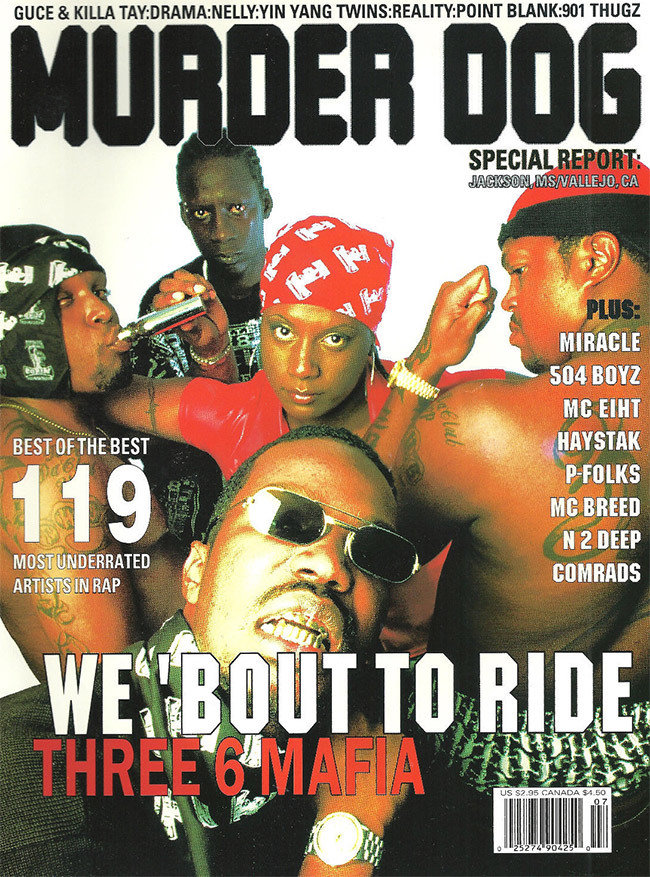
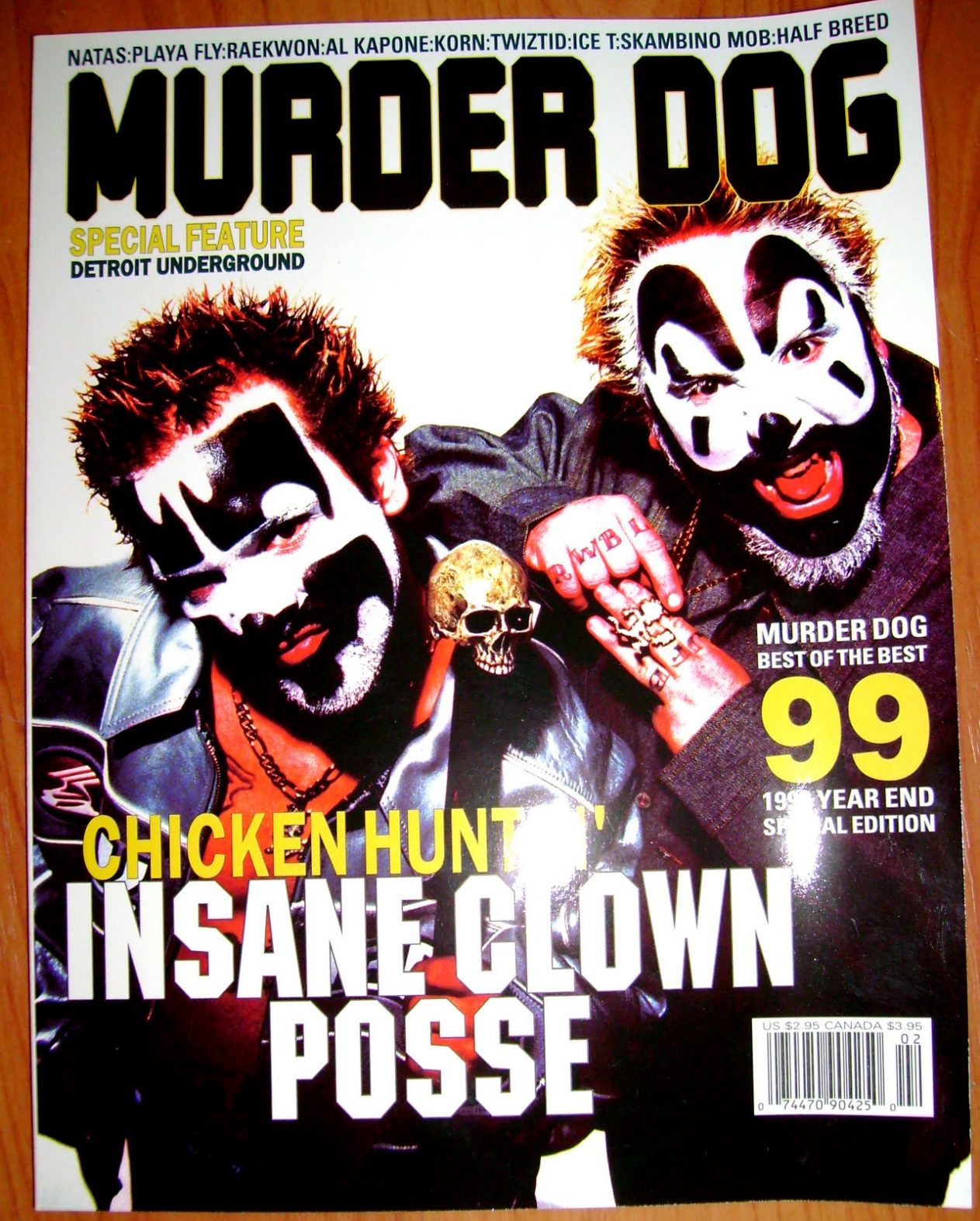
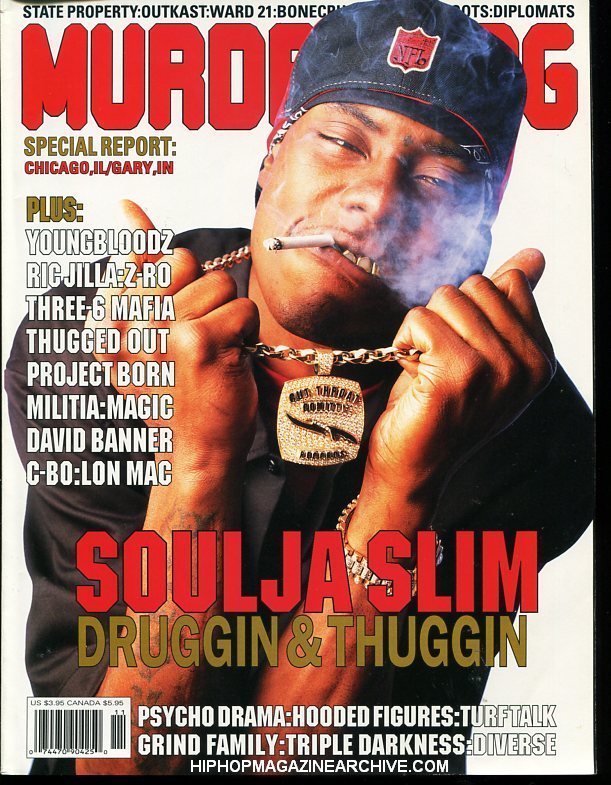
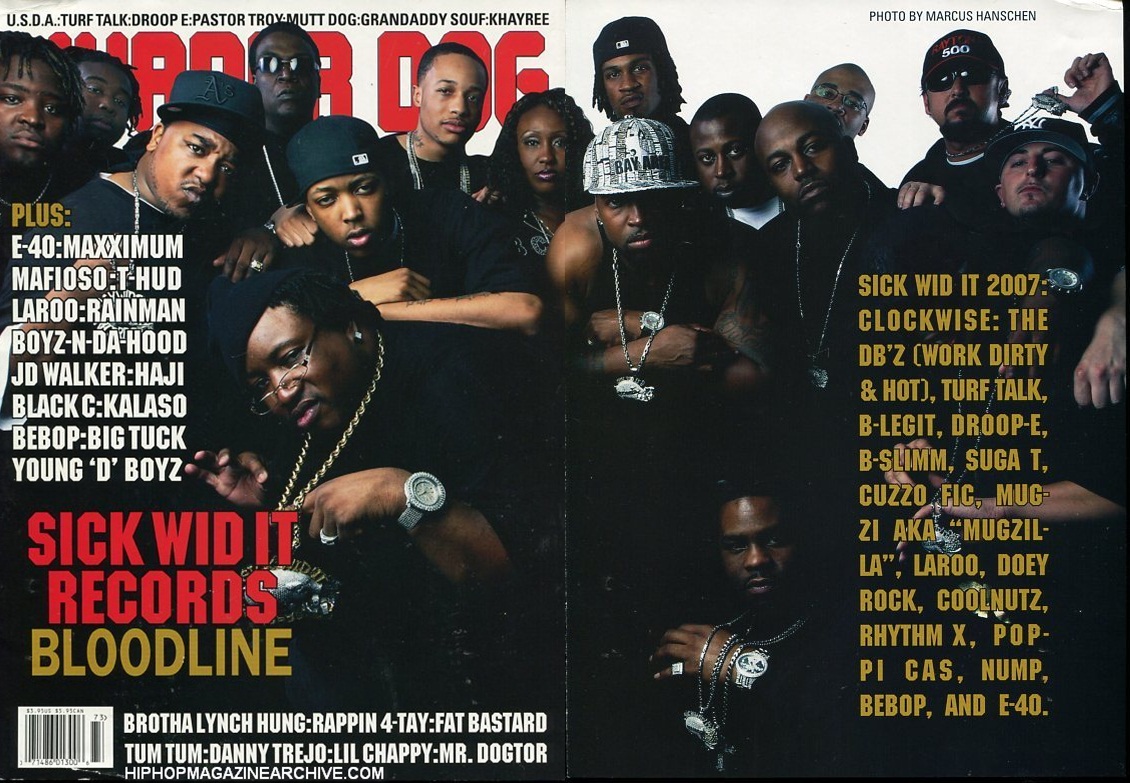
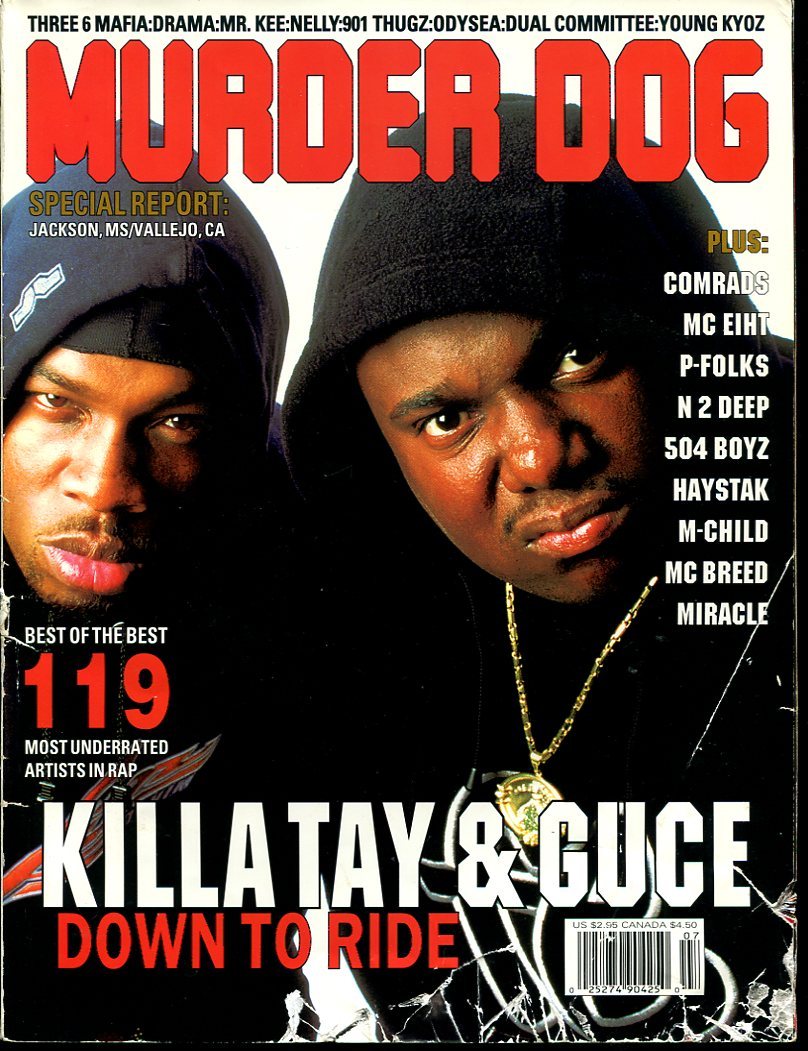
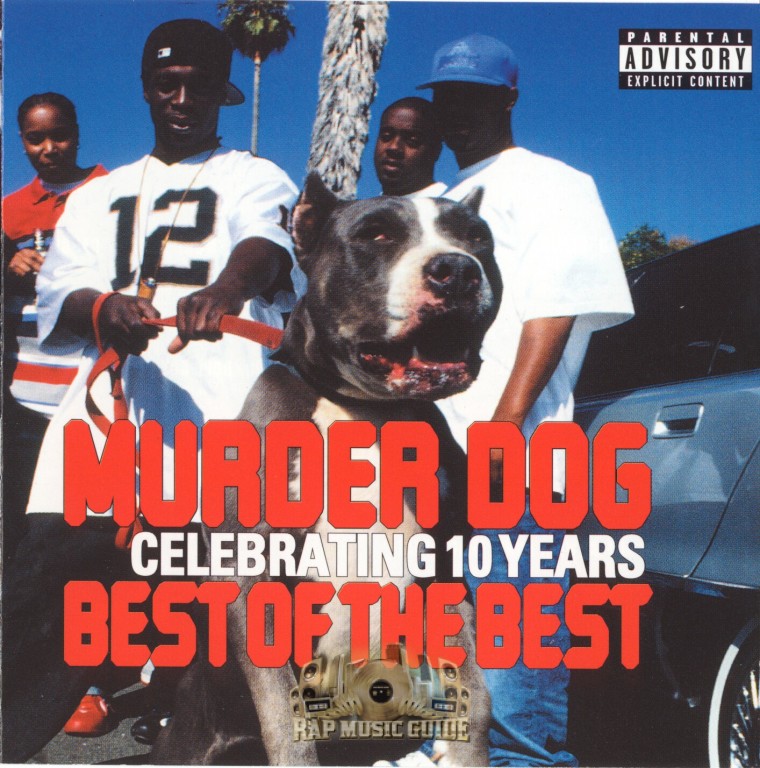
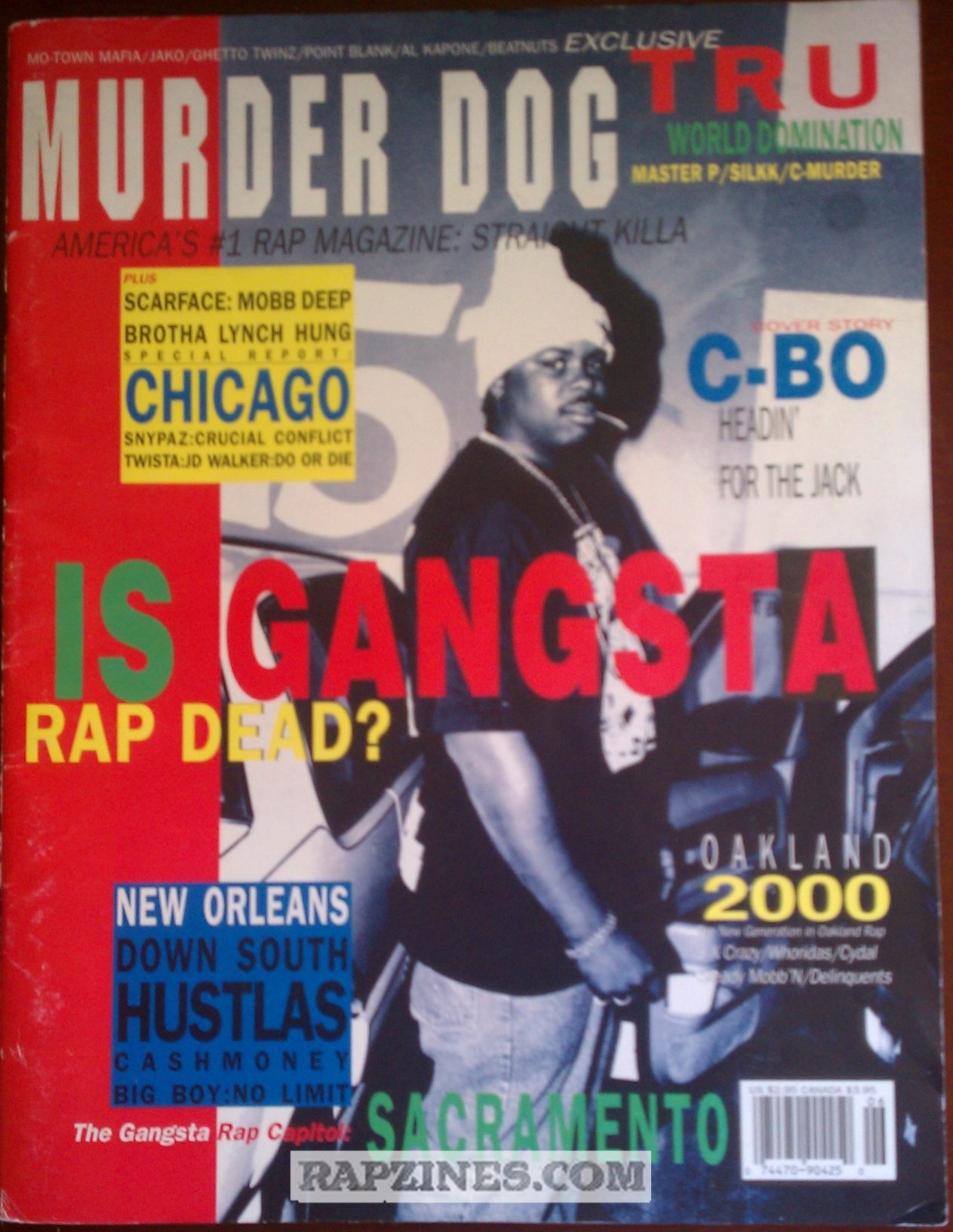

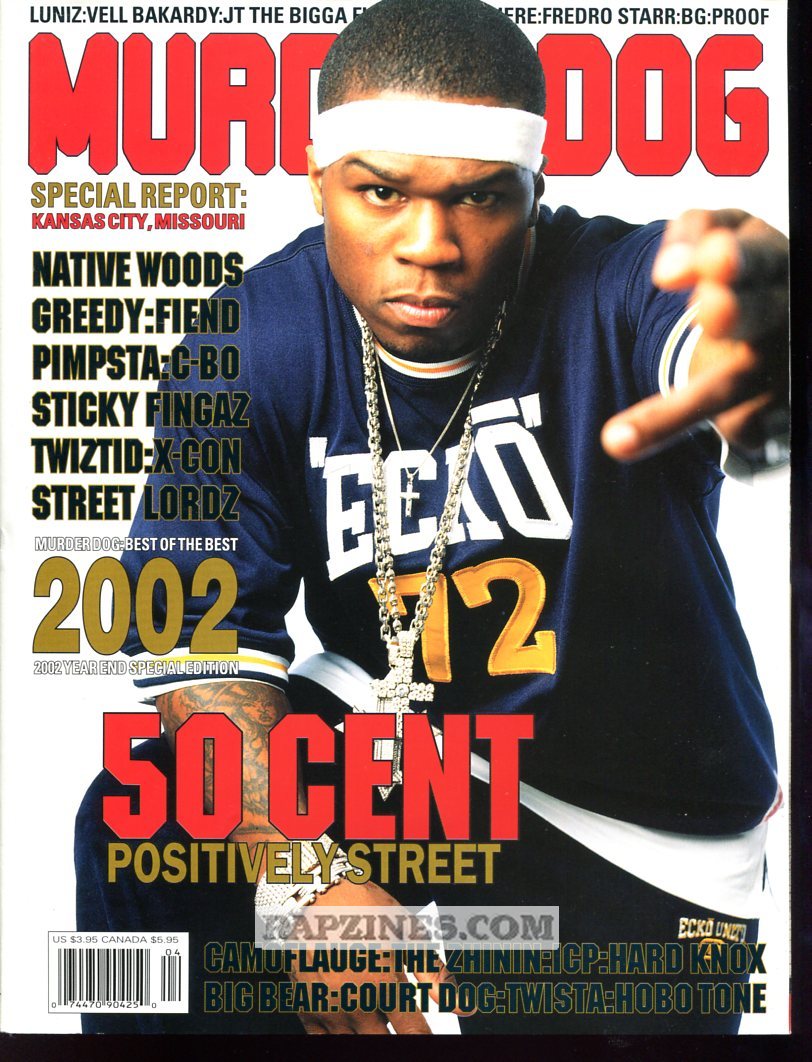
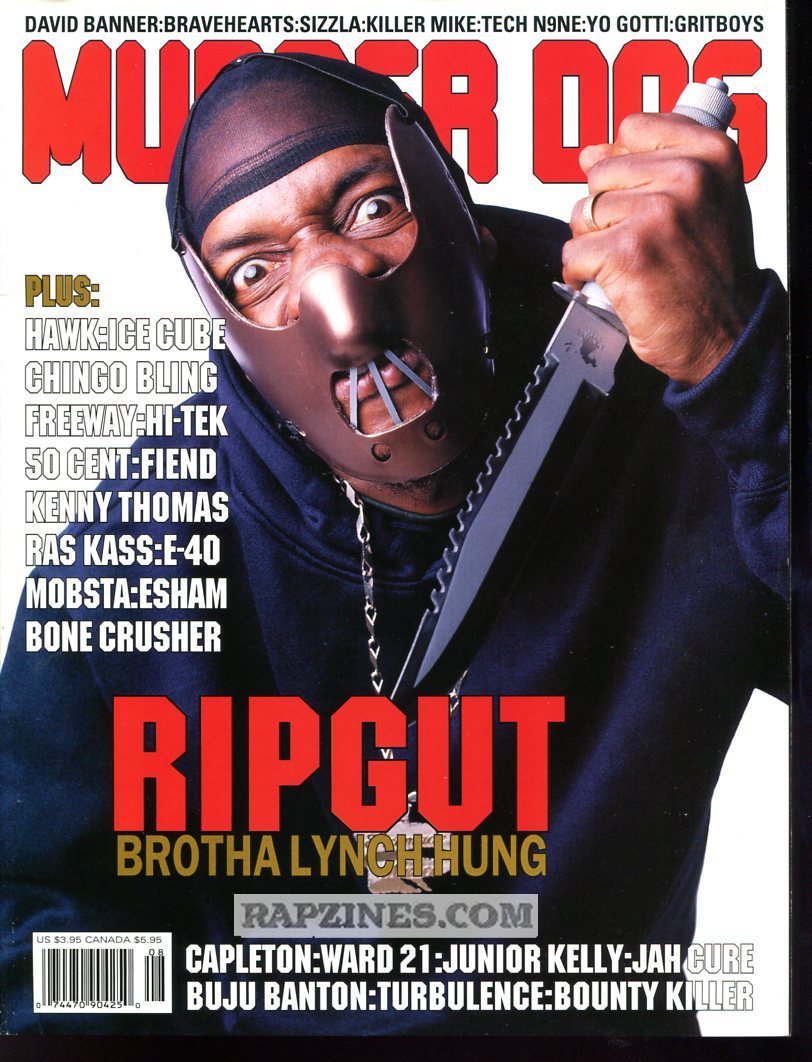
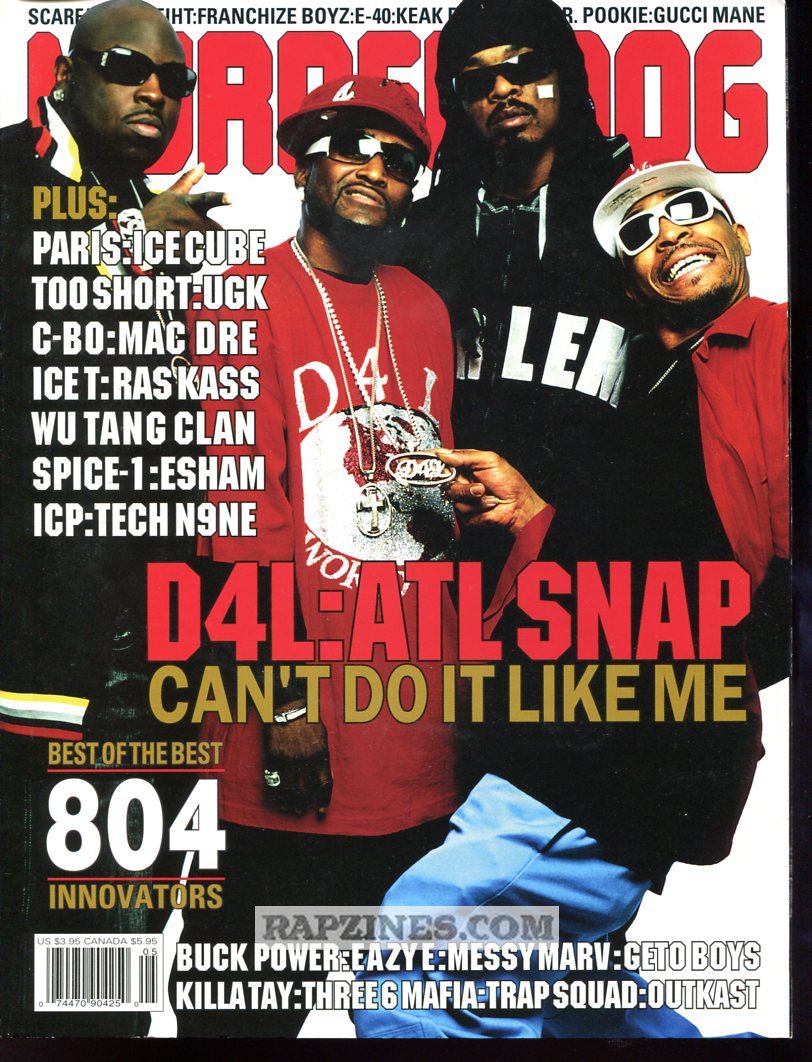

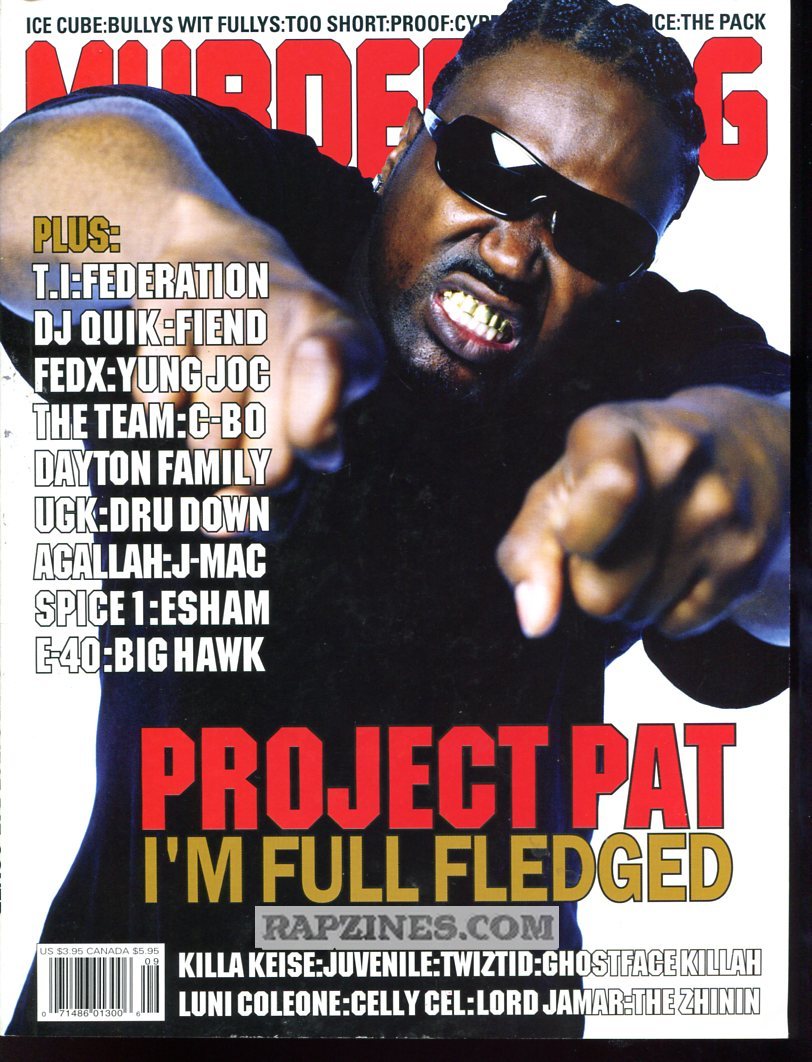
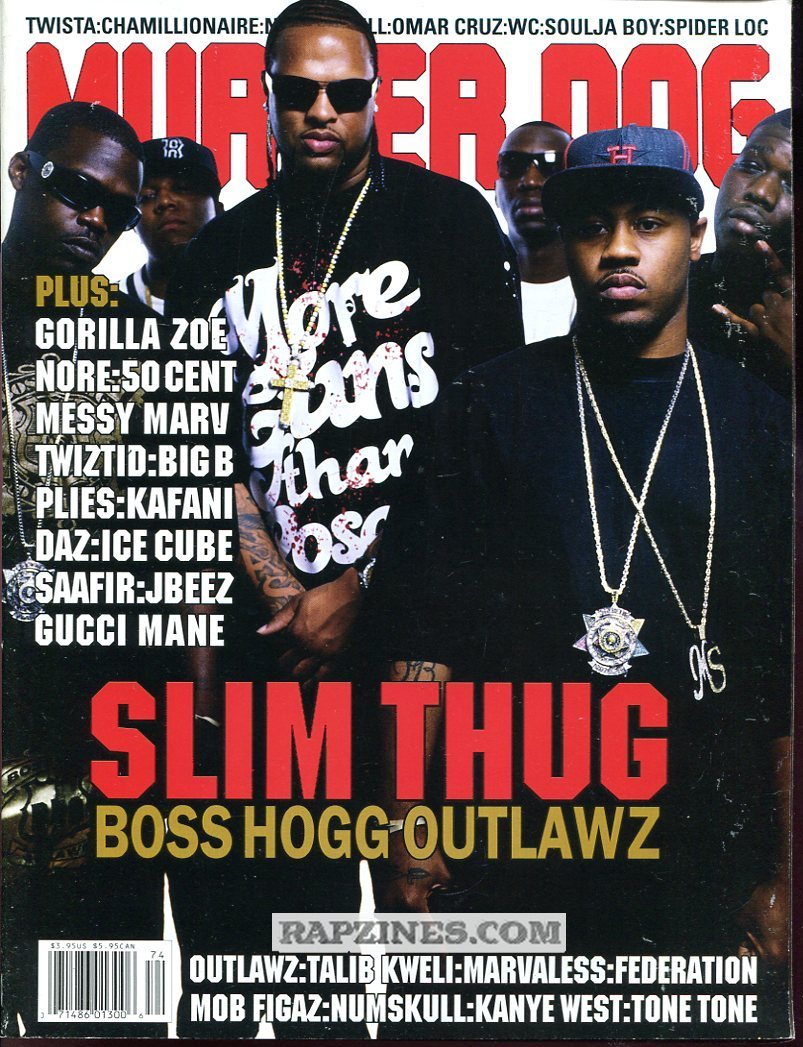
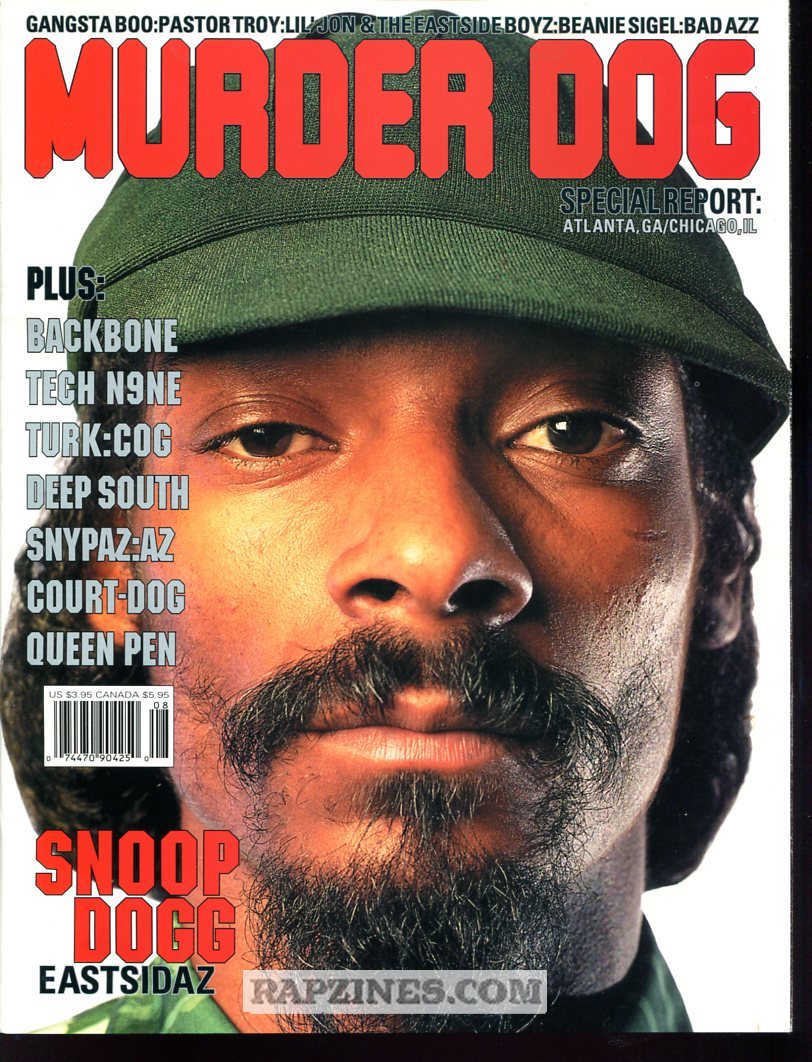

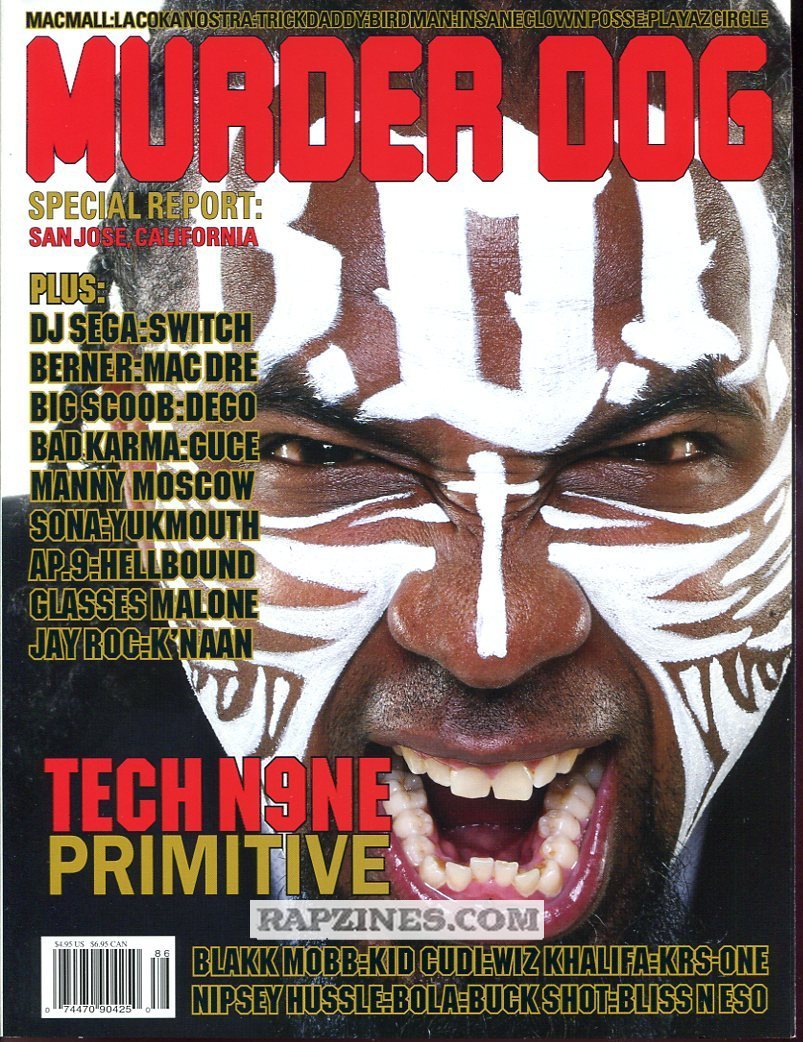
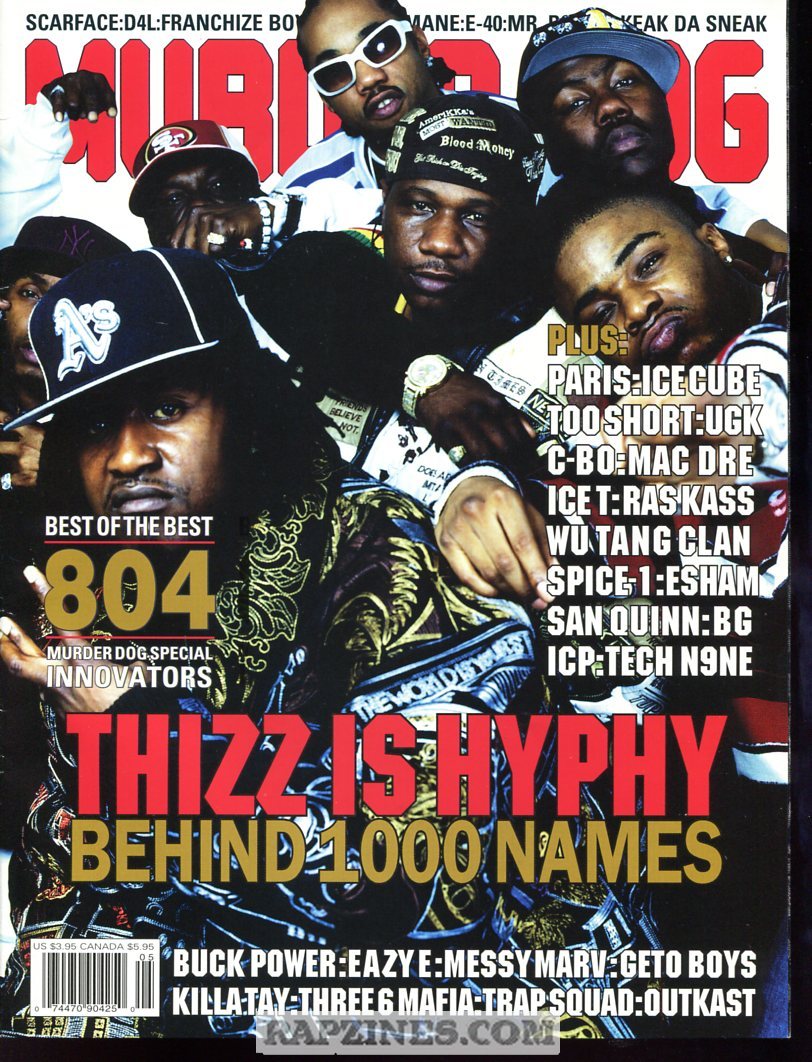
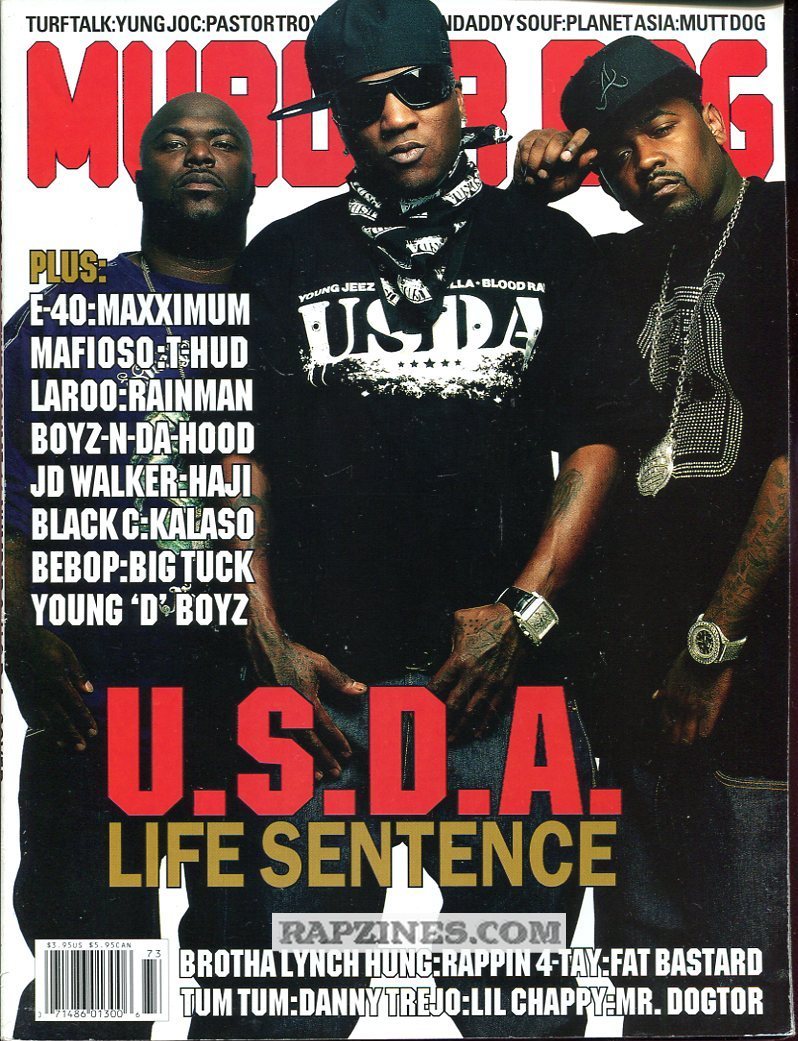
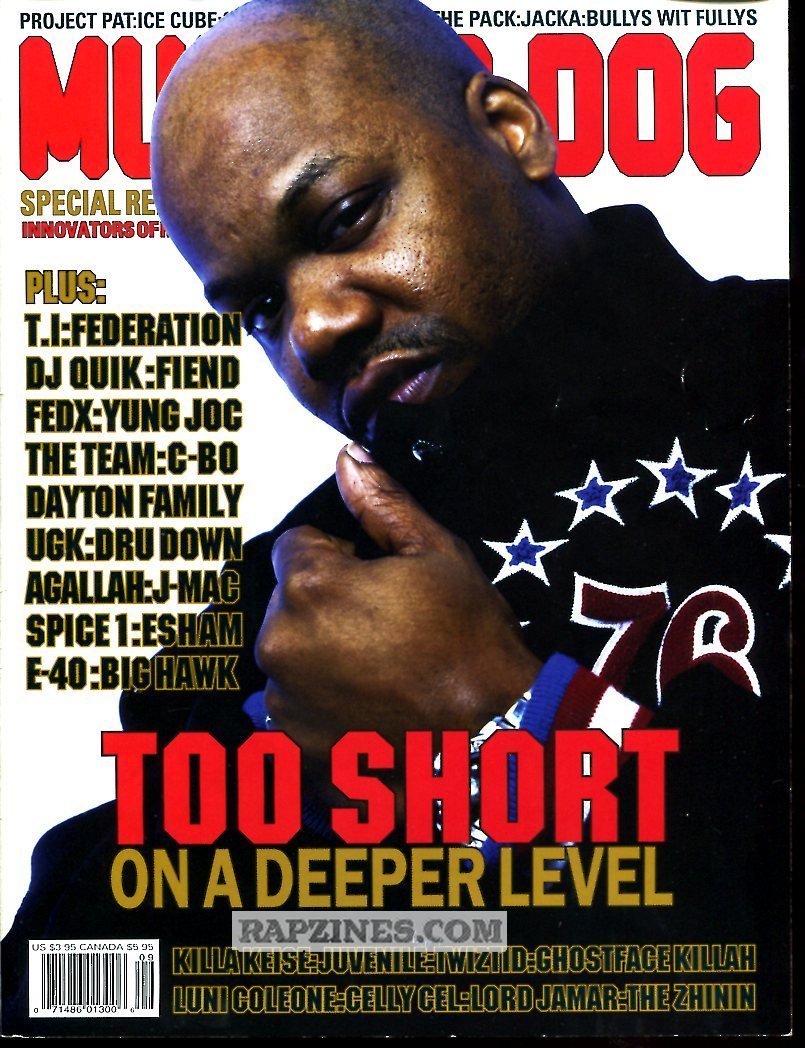
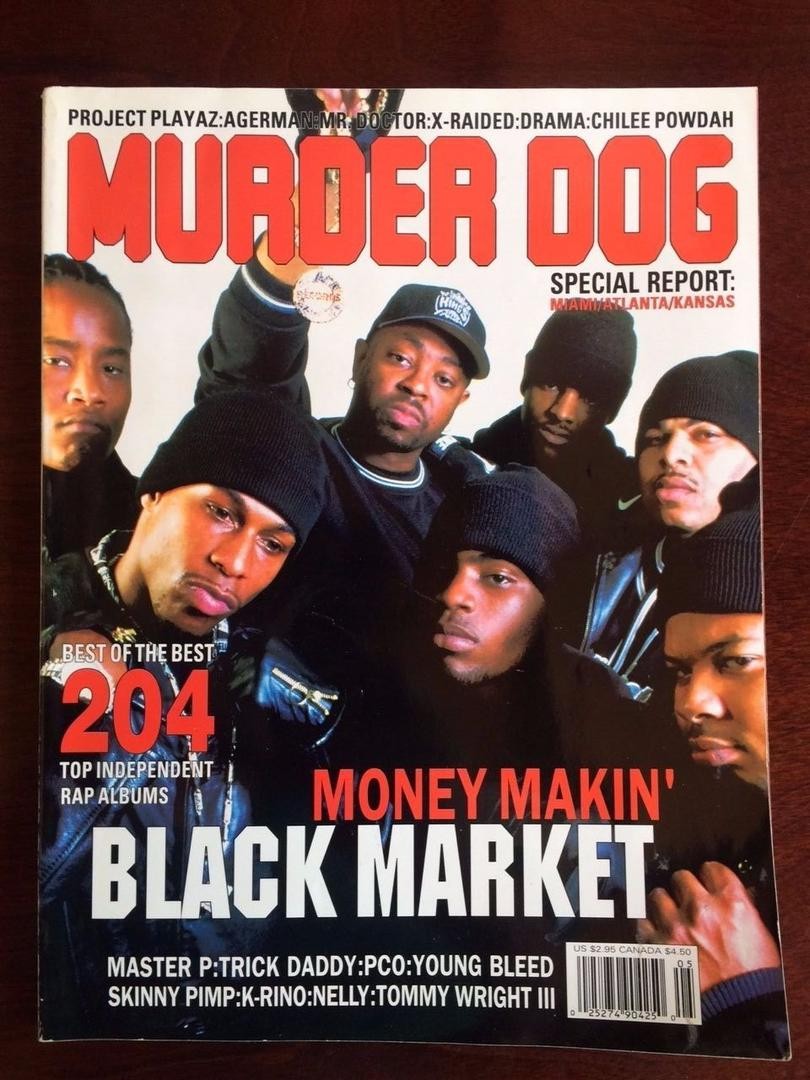
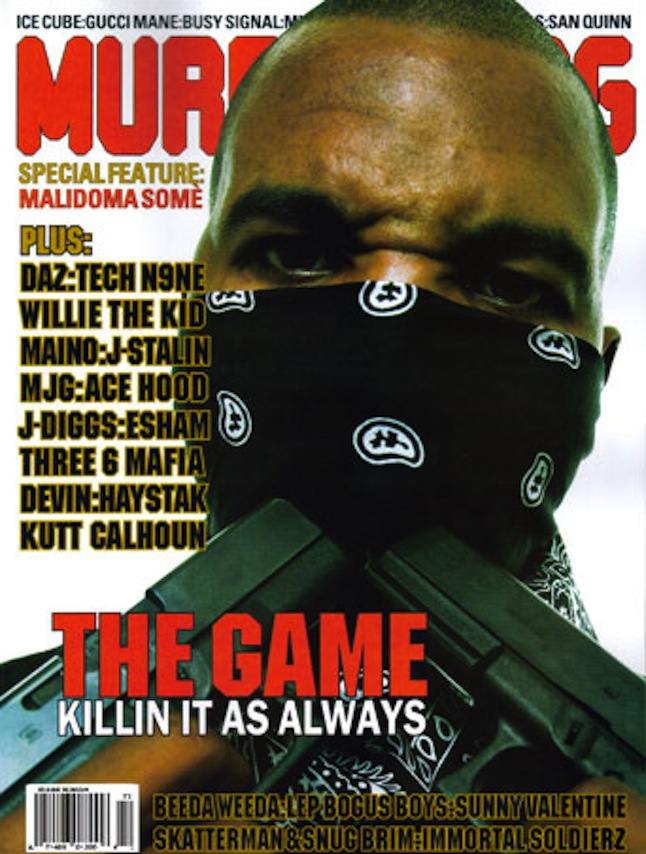
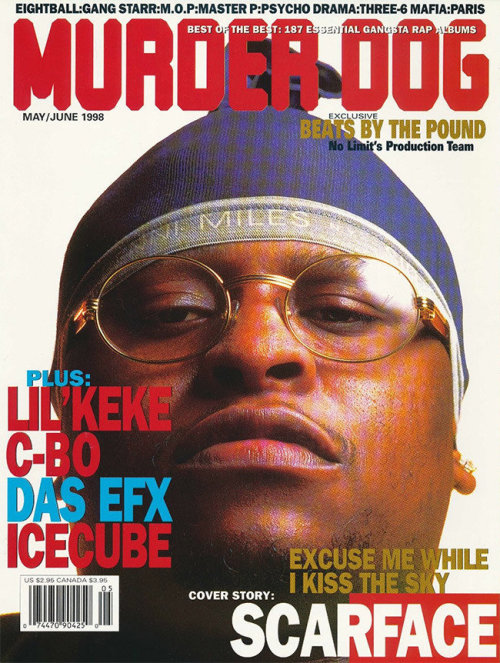
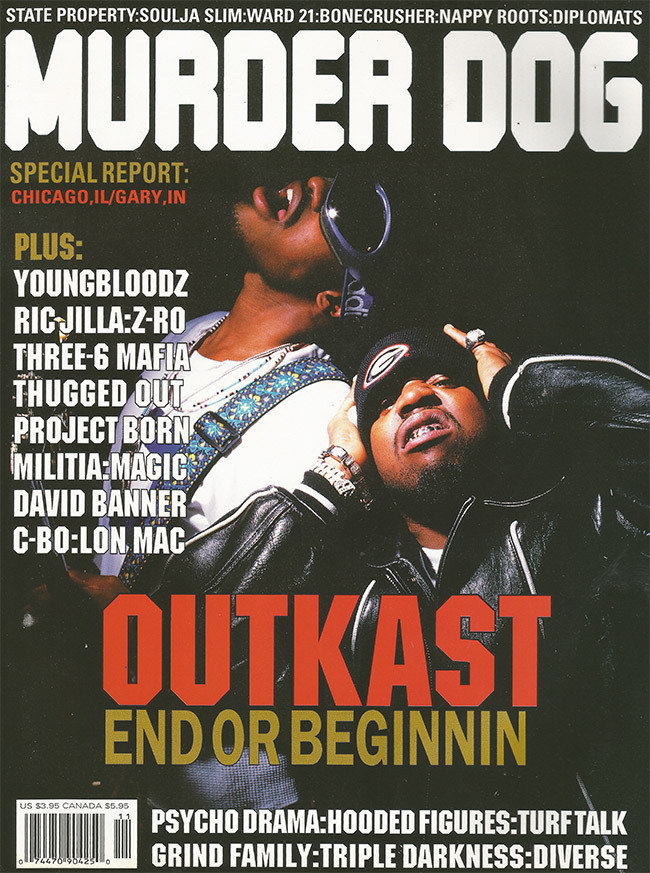
When did you start getting more into those Bay Area rappers?
This is what really made Murder Dog. I got ahold of a tape by this group called Funky Aztecs. I don’t know why, but I was amazed by them. They were different from what was going on. I knew about E-40 but they [made me feel] like, “I gotta find them, I gotta do an interview with these guys.” I had photos with Wu-Tang Clan and all of this other stuff, but the magazine was never done, this was going on for like four or five months. So I drove here looking for Funky Aztecs and I came to the Hillside [neighborhood] and I was like “Man, I love Vallejo. I gotta move here.”
I knew E-40 was from Hillside. I wanted to live close to E-40, so I got a place like a block away from E-40. You could’ve just walked to E-40’s house from my place. Celly Cel, E-40, all of them were right there. So you have Northside which is Mac Mall and Mac Dre and the others and they were feuding even back then. I was in the Hillside but then I started going to Southside. Southside is even more primitive, you’re talking about third world, you’re talking about Sri Lanka. No sidewalks, gravel roads, trail road tracks, factories. So I moved to a Southside house.
I got into Young Black Brotha and all that stuff. They were pioneers here and they helped me out a lot. There was a guy who worked there named Rob Nonies and he said, “You gotta do an article on Young D Boyz, they’re in your hood.” So I went and interviewed Young D Boyz. And the stuff they were talking about I had never heard before. They were really into grimy Oakland rap. I’m into Wu-Tang Clan and Onyx, all other stuff. I’m like damn, it just blew my mind. So I did the interview and the photos and I come back to my house. I’m walking down the street and I see Young D Boyz. I was living on their street!
They were amazing. Their first record is a very mysterious, mystical record. Khayree and John Dillinger produced most of it, so the whole record is very atmospheric. Then here are these two ghetto guys who are fucking real. I’m telling you Young D Boyz are as ghetto as ghetto can get. I know them. Whatever they talk about on there, they did it. I was just so impressed by them. So when we did the first Murder Dog I did not put Wu-Tang Clan or the Fugees on the cover. I put Young D Boyz on the cover. I’m like fuck all these big [names], I don’t really care. I’m not trying to make money. I love these people, I love this music. I’ll do anything to promote it.
The first ad we ever sold was for Souls of Mischief. I don’t know why Jive did that, but they did an ad with Murder Dog. I said $1,200 for a page. They paid one-thousand-fucking-two-hundred dollars to an unknown magazine!? Then John Dillinger came like, “My grandma gave me money and I want to put an ad in Murder Dog.” So with Jive’s money and John’s money I made like $2,500. I paid the printer and Murder Dog was born.
How were you distributing the magazine back then?
There was no distribution or anything on the first issue. I was just passing it out, going from store to store. And you’re talking about 20 years ago. I would take this magazine to record stores, mom and pop stores owned by black people. “What does this say?! We don’t want it. You have the word ‘murder’ and the word ‘n**r’.” I’m a reporter. Whatever you say, I put. You say “bitch,” it’s here. You say “motherfucker,” it’s here. I’m not gonna edit all that stuff.
What do you say to the idea that the kind of rap you were promoting perpetuates negativity or stereotypes?
Well… the thing is like this. The black kid growing up in the hood, especially the male, is like the one who’s like the rat – cornered, about to get killed. In all of America, even more than the Mexicans and the Arabs and the Sri Lankans. A black male is the one who’s cornered. This music, rap music, could come from no one but that person. Look, I can come from Sri Lanka and some motherfucker can come from India and from Iraq or from Dubai, wherever, and make a life here. But not that fucking black kid who grows up in the ghetto, in the fucking corner. That’s the truth, I know that truth. Bro, I know that truth. It fucking hurts me. People don’t know what a black boy goes through here.
When we started Murder Dog I gave free subscriptions to prisoners. We would get thousands of letters, literally hundreds every day. I would read these and get so upset that I’d cry. These guys were in prison for no fucking reason, for some little thing. I mean some people do [serious] shit but some people are in for nothing. That black guy in the corner is the worst off in America. He has all the odds against him. When you are walking down the street, when you see a black guy and go, “Is he gonna fucking rob me?” I feel that too. It’s a plot. But he might [rob you]. And why shouldn’t he? He has nothing.
But rap offered guys a legal way to climb out of that.
And they did. I always heard that black people are lazy and all that stuff, but man these motherfuckers are hustlers. They hustle all day and night. Just give them a little opening and they’ll hustle more than any hustle ever. You’ll see what a black… boy can do. I don’t even want to say black man because these are young kids who are like 16. They are the ones who rap.
So you had The Source, Rap Pages and Rap Sheet. Those three were the main magazines. But the ghetto community was not happy with that shit. The West Coast was not getting the support. So what Murder Dog did… you can see the changes. First issue we had Wu-Tang Clan and Fugees and Onyx and that stuff. The next one is like bam. Somehow our first issue [got] to the south. There’s a distribution company [in Memphis], Select-O-Hits, and [SOH employee] John Shaw got a copy. He opened the doors to the South. The South!? This was 20 years ago. It was East Coast, East Coast, East Coast and like a little NWA. No one even heard of the South. No one heard of Bay Area. So if you look at the second issue of Murder Dog we have interviews with Southern artists. After that I’m like, “Fuck the East Coast.”
And I have nothing against Source or Rap Pages or Rap Sheet. I’m not fucking competing with these magazines. I worshipped these magazines because they supported rap when Rolling Stoneor Spin didn’t. Why would I want to compete with Source? I grew up with the fucking Source.
And speaking as one of the kids who was reading this stuff it was never just “I’m gonna buy one or the other.”
You bought both. I did too. When I started doing Murder Dog I just saw in the The Source and Rap Pages that their mind was set on hip hop. Quote-unquote “hip hop,” right? With gangsta rap they were like, “That’s not hip hop, that’s not lyrics.” You saw that, right? I’ve never understood that. I’ve done this magazine for 20 years. It’s the 21st year now. You name any rapper, I’ve met all of them. But I have never met a rapper and a record label as amazing as Tech N9ne and Strange Music. I can’t even explain to you, it’s not just about his music. One, he comes from Kansas, from a strange unknown place. The Midwest. Two, he is hated and despised by his own people, because they think he’s a devil worshipper and he has a mohawk or whatever. He is ghetto as you can get, but he’s intellectual too. He had a Muslim parent. The music he has done borders gangsta rap, borders Horrorcore, borders rock. But XXL never gave him a cover. The Source never put him on the cover. Fuck all that stuff.
When did the magazine start really catching on?
It got big so quickly it was unbelievable. How it got big was like this: We were just fucking raw. We were the first people to put guns on the cover. Because I’m a reporter. I’m not a writer who would edit you out. I’m like, “This is what you are.”
What most magazines and newspapers do is they record you and they take a couple of quotes from you, then they write how they feel about you. But you can never feel what a Sri Lankan feels. You can never feel what a black guy feels. I can never feel what a guy in Finland feels. And I’m a black skinned guy, but I’m not African American. I never had that experience. I didn’t feel like I was right to write an article. And I didn’t even know how to write an article to tell you the fucking truth.
So the interviews you were running were basically unedited transcripts of your entire conversation?
It’s the total interview we run, but I jumble it up a little. I don’t like logical stuff, I’m not a logical person. And to tell you the truth I’d edit any time a rapper would say something bad about another rapper. I don’t want any conflicts. If they start talking about, “Oh, I hate Biggie Smalls or fuck 2Pac.” If I catch it, I cut it. Or sometimes if I think they’re saying anything to endanger themselves, if they’re saying “I did this and that,” and they’re on parole or whatever, I’ll edit that. I don’t want these guys to get in trouble. Also I don’t ask about all that other stuff. It’s a music magazine, just tell me about rap. You want to talk about that other stuff, tell someone else. Go talk to F.E.D.S. or whatever, I don’t care about all that gang stuff.
So we were the first rap magazine to just do interviews. And all of the young black men and women were so elated to see a magazine where they could hear their voice. So Murder Dog is a fucking real magazine and people like Master P and Three 6 Mafiacould recognize that. When Master P broke through, he had a cover, Pen N Pixel did it. He put eight ads, this boy was paying like $10,000. We were making money, bro! Our ads were $2,800 or $1,800 or whatever eight years ago. And Master P would have eight ads! Then Cash Money sees this. Next thing Baby and Ron [Williams, Cash Money founders] are putting ads. After the third or fourth issue, that was it. We were just fucking hot.
And we were doing all independent stuff. Murder Dog was never a corporate magazine. You see me. Am I a corporation? Def Jam would call. Interscope. “We’re not doing your shit, we’re doing underground stuff. You want to be in the magazine? Our ads are $2,800 for major labels.” Do the mathematics – when we were at our heights major labels were paying $3,400, sometimes $3,800 a page for ads. So Def Jam might put two or three ads, Interscope, Universal. Plus independents. There were issues that we had forty ads. So even if someone is paying $2,000 for ads… How much is that?
But we were very bad business people. We were paying $100k just to print the magazine. We were pressing huge amounts, just blasting it all over. We had 10,000 free subscribers in prisons. Our accountant came in and said, “You guys are fucking crazy, this is not business.” If you’re spending $1 on the magazine and 80 cents per mailing, you’re spending $2 [each] on 10,000 issues. I’m like, “Oh my god!” I never even realized. We were sending boxes of magazines all over to people and they were selling them in the hood and we were not getting a cent. But the money was flowing. We were loaded up with money, man. I didn’t know what to do with it. They paid my way. I have land, 150 acres in America. I have land in Sri Lanka.
And you were still personally putting together a lot of the content on those early issues, right?
I used to go all over traveling. I was always on a plane somewhere, I used to go for weeks. If I’d go to Memphis, I’d have people. If I’d go to New Orleans, I’d have people. They’d take me around, I’d live in a hotel and we’d do all this stuff. At the beginning it was exciting and I was taking photos and all this stuff and then it got old, I got so tired. I had people I would send all over. Matt Sonzala, Scott Bejda, I trust those people with my life. I used to shoot the covers, but you get too old. I’m like “Matt, do it.” Marcus Hanschen was a great photographer. He’d go all over and shoot photos. He was in Washington on 9/11. He was stuck there for like a week. He had to rent a car and come here. He was doing a… what is that music that goes on in DC?
No one has done an [issue] on Go-Go music except for Murder Dog. There’s this amazing music going on and nobody recognizes it. We had Chuck Brown on the cover of Murder Dog, the whole Backyard Band. We supported that. When garage music came, I had my people in England and they did a huge article on garage music. I love all music. Murder Dog was into dubstep, Burial, whatever before anyone.
When you do stuff like that, do you ever worry about alienating, say, the E-40 fan who buys Murder Dog every month but sees Burial or whatever on the cover?
I don’t give a fuck! They’re like, “Black Dog, why are you doing this shit?” I don’t care. I would put M.I.A. or whoever I want. I have done African rap, Sri Lankan rap, Middle Eastern rap, English rap. I have interviewed shamans in Murder Dog. I’ve interviewed David Wolfe, the raw food guy. I’m into raw food, I’m into health. I run every day, I’m a vegetarian. I don’t eat meat or fish or anything for years. I’m pretty much a raw foodist. I eat everything raw. I’m extreme about it. Murder Dog comes from extreme things.
How did you get the name Black Dog Bone?
That came in the Art Institute. I told you I come from a shaman family. And we had these demons and the most vicious demon is the black dog. When you go at night and you see a spirit and it turns into a black dog. When we were kids, we were scared of black dogs. If you go in the streets alone that motherfucking black dog is gonna come. So I’m really into the blues and blues people are also into that shaman stuff. There’s a song called “Black Cat Bone.” If you cross the path of a black cat, you’re gonna have a day that’s gonna be awful. But black dog is from Sri Lanka. So that’s Black Dog Bone. Whenever I would have photographs in shows or galleries I used “Black Dog Bone.” That became my art name and I kept that. When I was doing the punk rock stuff, I had a different name. People in punk rock don’t know my name. No one knows my name. I keep everything secret. I’m like Banksy. Not because I want to be mysterious, but because I do other stuff.
You’ve been less hands on with the publication in recent years.
I was so busy. I took a plane ticket and bought my land in Sri Lanka. I was in the rainforest, living with shamans and learning about healing and dancing. I have videos of me doing the masks and everything. I was gone for like a whole year and they were running Murder Dog. They would send me all this stuff and I’d just [approve] like, “Okay, cool, cool.” But it did get weak. And I came back, put Murder Dog back in a little motion and left for another year. Then when I came back Murder Dog was going like… down. Because they could not do what I was doing. So I stopped doing that and I stayed here. Now I go [to Sri Lanka] maybe one or two months [a year].
But Murder Dog is different now. I’m gonna be true, man. It’s the end of print magazines. And internet? Fuck internet. No one gives a fuck about internet, because there’s so much. I’m not interested in that stuff. To me, it’s not even exciting to read something on a website. It’s like diamonds or gold. If there’s too much of it, you don’t even care anymore. It doesn’t mean anything to you.
It seems like the independent street rap scene has scaled back in similar ways.
There’s no money in the ghetto now. Like you have Jacka. He’s amazing. Lyrically he understands, politically he understands. He has a beautiful voice, he can rap and he can sing. He’s a really amazing person. I went to Seattle to do an article. I’m in all these rappers cars and in every car they were all playing Jacka. I didn’t even know Jacka was that big. He’s like a legend there. And he’s a Muslim. So all these rappers in Seattle are becoming Muslim because of Jacka. That’s the power of music. If he was there years ago [his record sales] would’ve been huge. But people in the ghetto are not making money. People are not selling any CDs. They can say, “The internet is good, the website is good.” But they are not making money. Who’s making the money? I don’t know.
Current Murder Dog issues are available at www.murderdog.com.


